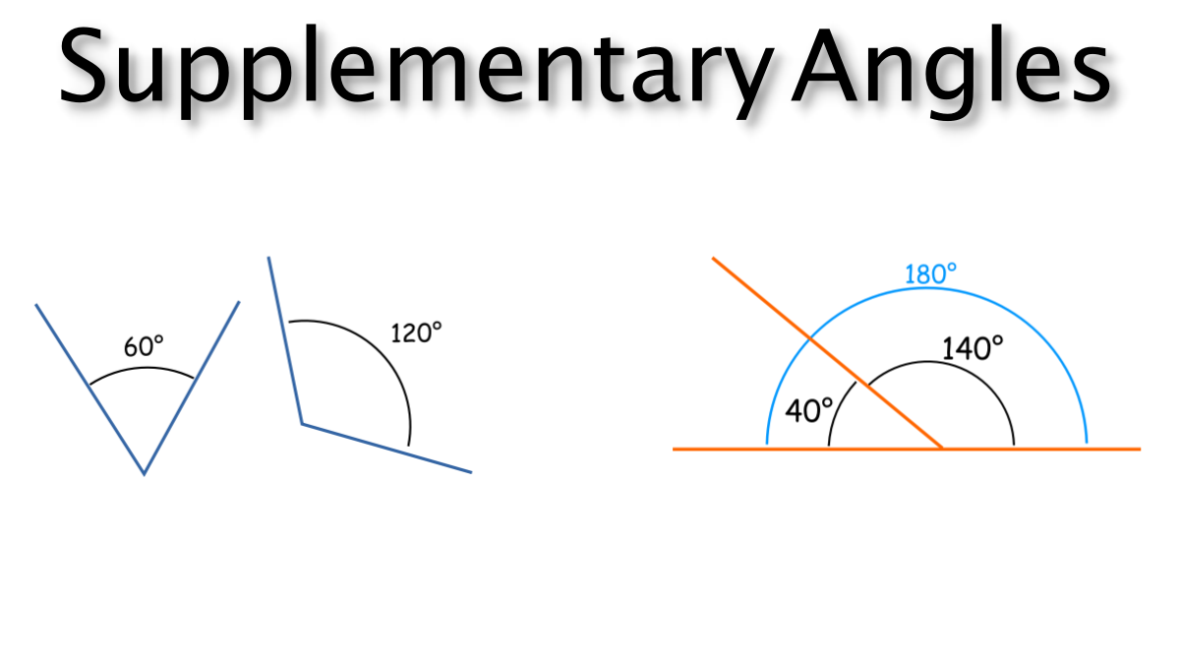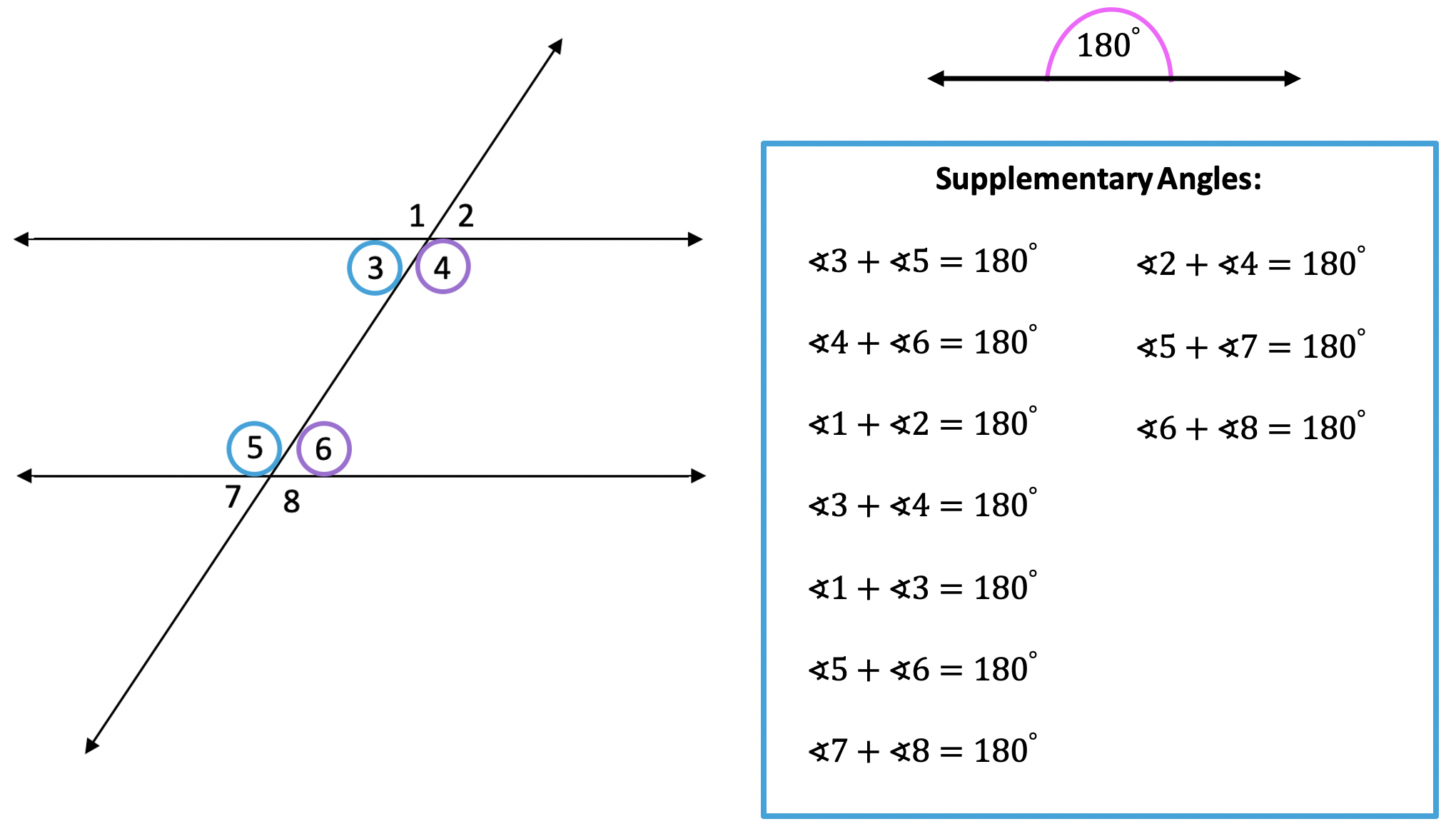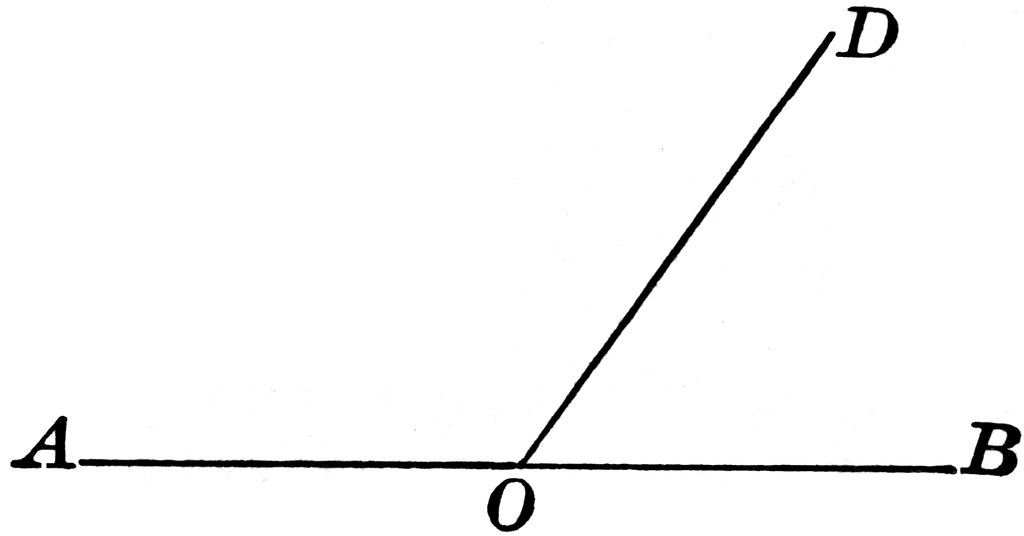
#Supplementary angles geometry definition how to#
Learn how to solve trigonometric equations with supplementary angles, sine. The two angles can be adjacent or non-adjacent. If the sum of two angles is 180 degrees, those angles are supplementary. A linear pair (two angles that form a line) will always be supplementary.

They dont have to be next to each other, just so long as the total is 180 degrees. Sum it up: Supplementary angles are two angles whose sum is 180°. Two angles are Supplementary when they add up to 180 degrees (a Straight Angle). Geometry & Algebra: find the value of x the find the m ABD and m DBC. Remember that linear pairs are supplementary and that 2 intersecting lines will form 4 pairs of supplementary angles. How many other linear pairs can you see in the diagram? 45 + 135 180 therefore the angles are supplementary.

Given m 1 45 and m 2135 determine if the two angles are supplementary. The angles can be either adjacent (share a common side and a common vertex and are side-by-side) or non-adjacent. Explore the definition, theorem, example, and application of linear pairs. The definition of supplementary is two angles whose sum is 180 are supplementary.

The angles hk and kh of Theorem 1 are called supplementary angles or a. So notice that for a supplementary and for complementary you can't say that five angles are complementary but we're always talking about pairs or two's. Note that if we define the closed interior of an angle to be its interior plus. Now, a supplementary pair could be angle 4 and angle 5 which are adjacent and they are linear. So complementary angles could be angles 1 and 2. Here we have five angles 1, 2, 3, 4 and 5 and we're told that this angle 3 is 90 degrees, now one thing that you can assume is that 1, 2 and 3 are all linear, so if you add up 1, 2 and 3 it would be 180 degrees, which means that 1 and 2 must also sum to 90 degrees so I could label this as a right-angle. Let's look at a specific example where you might be asked to identify supplementary angles and complementary angles. The same is true for complementary angles. Here the Supplementary meaning is one Angle is.

But I could also say if we had some angle here that we said three and let's say 3 was equal to 60 degrees and I had some other angle over here, let's say angle four was equal to 120 degrees, I could say that these two angles three and four are supplementary because they sum to 180 degrees. When the sum of the measure of two Angles is 1800, then the pair of Angles is said to be Supplementary Angles. So supplementary angles could be adjacent so if I had angles one and two those two would be supplementary. And I noted here that these do not have to be adjacent. Supplementary angles are two angles whose measures sum to a 180 degrees and complementary are the sum have to add up to 90 degrees. Two concepts that are related but not the same are supplementary angles and complementary angles.


 0 kommentar(er)
0 kommentar(er)
